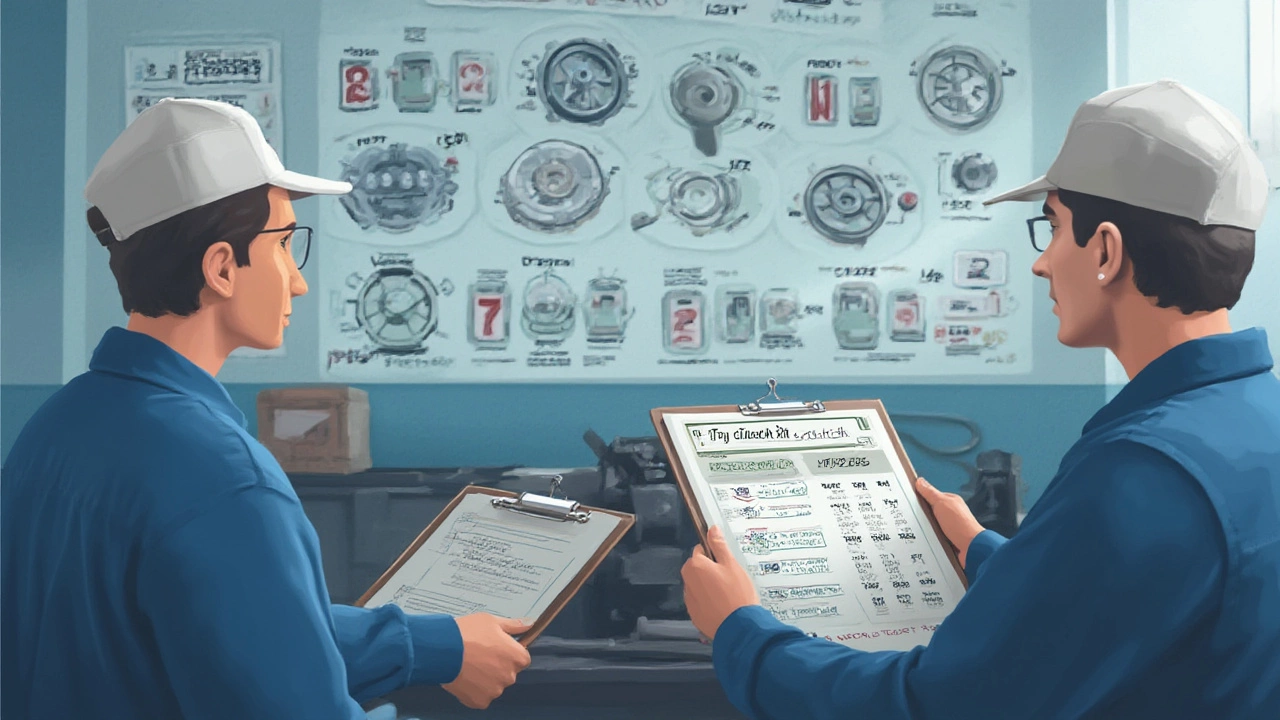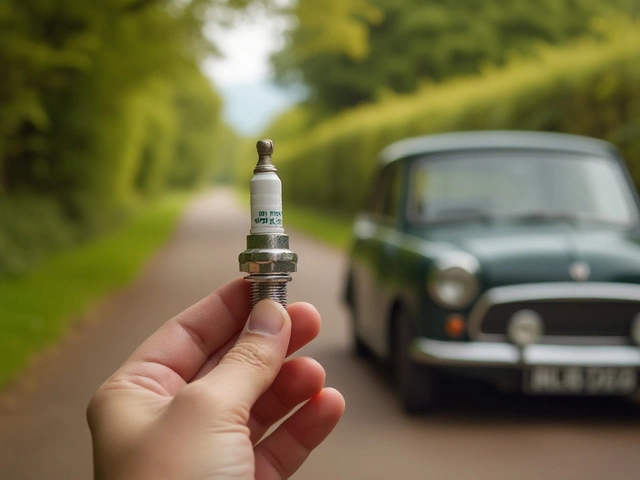Picture this: your car starts slipping gears, the pedal feels weird, and that faint burning smell becomes far too familiar. You know the clutch is dying, and you’ve heard clutch jobs can get pricy — but how much are you really in for when it comes to labor? Here’s the catch: clutch kit installation is one of those repairs where labor eats up most of the bill, not just the parts. Even if you’ve never held a wrench, understanding what you’re paying for (and why) can save you headaches and maybe even cash.
Why Clutch Kit Replacement Requires So Much Labor
You might think clutch kits are just one more thing on a mechanic’s to-do list, but replacing one is a marathon, not a sprint. This isn’t because the clutch part is huge or complicated, but because of where it lives: deep inside your car’s guts, sandwiched between the engine and the transmission. Getting at it means disassembling a hefty chunk of the car, sometimes even removing the gearbox completely.
An average clutch kit swap, even for experienced mechanics with good equipment, takes between 4-10 hours. That’s not counting those moments when bolts round off, things get rusted, or, as I once experienced, a mechanic discovers a previous DIY’er left the transmission barely holding on with dodgy bolts (never fun, trust me). Manufacturers and car repair guides list specific labour times for each make and model, and these can vary wildly. For example:
| Car Make & Model | Average Hours | Notes |
|---|---|---|
| Ford Focus (2018 manual) | 5.5 hrs | Common compact car |
| Volkswagen Golf (2017 manual) | 7 hrs | Extra time for dual-mass flywheel check |
| Vauxhall Astra (2016 manual) | 6 hrs | Engine support needed for 1.6 diesel |
| Mini Cooper (2014 manual) | 8 hrs | Subframe removal required |
| Ford Transit Van (2019) | 10 hrs | Heavy-duty & often seized fasteners |
The more cramped the engine bay or the more stuff packed under the bonnet, the longer and trickier the job gets. Some rear-wheel-drive cars shave a couple of hours off compared to front-wheel-drives with packed-in engines.
How Much Should You Expect to Pay for Labor?
This is the part that makes most drivers wince: the labor charge is the major slice of a clutch kit replacement bill. Garages in the UK, as of this year, commonly charge £50-£100 per hour for labor. The national average rate sits just over £65 an hour, but in Bristol (where my mate’s garage is located), you’ll see anything from £70 to £120 depending on the workshop’s reputation and the tech’s experience.
Let’s break down what labour might look like on your invoice:
- Ford Focus, 5.5 hours at £70/hr = £385
- VW Golf, 7 hours at £80/hr = £560
- Mini Cooper, 8 hours at £95/hr = £760
- Transit Van, 10 hours at £110/hr = £1,100
Those numbers don’t include VAT, parts, or extras like flywheel machining or gearbox oil. In other words, you’re rarely getting out for less than £400 in labor alone—often closer to £700 or more for larger cars, vans, or models that require extra steps.
Here’s a tip: always ask the garage for their hourly rate and an itemized breakdown. A decent shop will tell you upfront and stick close to the estimate unless something unexpected happens. Watch for offers or clutch-specialist garages—they often quote a fixed price that can save stress.

What Influences the Final Labour Bill?
It isn’t just about how long the book says it takes. Loads of factors change the price. If you drive an SUV or a four-wheel-drive, there’s usually more stuff to remove to reach the clutch. Here are a few big things that bump up labor time:
- Engine Layout: Transverse engines (sideways in the bay) often mean awkward access and longer jobs.
- Drivetrain: AWDs (all-wheel drive) multiply the work—more shafts, more fluids, more bolted bits.
- Additional Repairs: Worn flywheels, leaky rear main seals, or mangled gearbox mounts mean extra time and extra money.
- Rust and Corrosion: If you drive in the rainy UK with its salted winter roads, bolts love to seize. Mechanics sometimes spend an hour just breaking stubborn things loose.
- Experience & Equipment: Specialist clutch tools, a two-post lift, or a skilled clutch tech can shave hours off what would be a nightmare in a basic driveway. Ask if your garage invests in decent lifts and transmission jacks; it genuinely speeds up the process.
If you're in an older Astra or Focus, expect fewer surprises. But newer cars (especially hybrids or cars with fancy driver aids) might need recalibration or diagnostic resets after the job, padding out the bill another hour.
Ways to Save Money on Clutch Kit Labor
Good news: you don’t have to just accept the first quote you get. Here’s what’s worked for me, my wife Olivia, and even my neighbor, whose ancient Volvo gets through clutches like I get through coffee.
- Shop Around: Compare at least three quotes, and ask if they’re quoting book time or an estimate based on the car’s mileage and condition.
- Go Independent: Main dealer rates are always higher (sometimes double). A reputable independent or clutch specialist will charge less and usually care more about keeping you as a customer.
- Bundle Repairs: If your car needs a service, new CV boots, or a leaky gearbox seal sorted, ask if the shop will combine labor so you’re not double-paying for overlapping work.
- Source Your Own Clutch Kit: Occasionally, buying the clutch kit yourself saves a bit (just make sure it’s branded and matches your VIN). Some mechanics may grumble, but plenty are happy as long as parts are good quality.
- Ask for Discounts: Garage slow? End of the month? It’s not cheeky to ask for a discount. I know a local Bristol shop that always knocks down the price for teachers, NHS workers, or loyal regulars.
- Check for Warranties: Many independents guarantee their clutch labor for a year, matching the parts. If they don’t, that’s a red flag.
Just don’t fall for back-street prices that seem too low. Bad clutch installs lead to all sorts of grief—vibrations, early wear, or, worst, a failed gearbox. You don’t want to go through this job twice, trust me!

What to Watch for When Choosing a Garage or Mechanic
It’s tempting to pick the cheapest garage, but don’t. Ask good questions and trust your gut. Here’s what I’ve learned from helping mates and family avoid disasters in the past:
- Experience with Your Model: Some garages know certain cars inside out. If you drive something quirky, find a specialist. Check customer reviews, or ask for recent clutch jobs they’ve done (my local shop loves showing off their before/after pics).
- Transparent Pricing: Any good mechanic will walk you through their labor estimate and show you what’s included (and what’s not, like fluids or disposal fees).
- Warranty on Labor: Ask if there’s any guarantee. A year is standard for reputable shops, even for labor.
- Clear Communication: If something changes, a trustworthy garage calls first and gets your approval. Get everything in writing if you can—paper trails matter.
- Proper Fitting: Insist they use a new clutch kit and inspect or machine the flywheel. Don’t let anyone reuse old, worn clutch hydraulics if they’re suspect; it’s not worth the savings.
And finally, if your car is still under warranty, or if you’ve got breakdown cover or service plans, check if clutch labor is partially or fully covered. Sometimes, you’ll get a surprising amount off your bill thanks to a policy you forgot you even bought. Ask—worst case? They say no. Best case? You save a stack.
Nothing about car maintenance is ever cheaper tomorrow, so if your clutch is starting to go, it pays to sort it before you get stranded. Ask around, find a garage you trust, and treat your techs well—they’ll remember it next time you’re in a pinch (and maybe nudge your bill down, too). Good luck out there.






